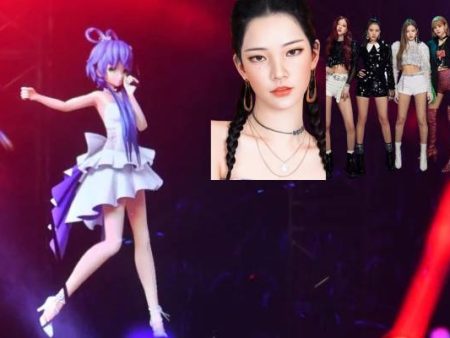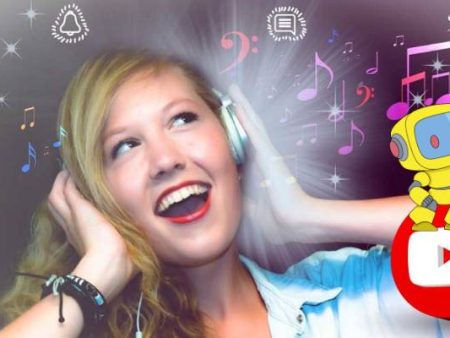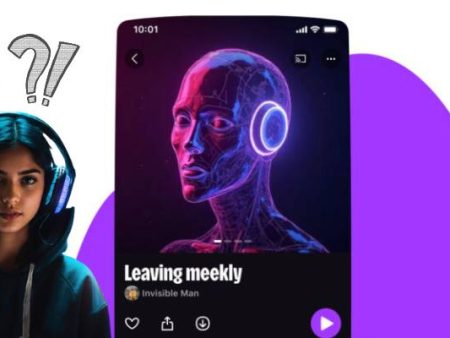The other night, a friend played me a track he’d been working on. It had a hook that felt oddly familiar, catchy in the way that modern pop songs are engineered to be.
When he told me an AI co-wrote the chorus, I laughed out loud—not in disbelief, but in recognition of where we are.
That laugh was nervous, too. Because deep down, the question many of us keep circling around is this: if machines can already help create a hook, how long before they co-write the next chart-topping hit?
This isn’t a futuristic hypothetical anymore. With the rise of AI music generation tools, the debate about human artistry versus machine efficiency has moved from theory into the studio, into boardrooms, and even into our playlists.
So let’s break this down together. Not just the technology, but the humanity wrapped inside it.
Can machines really help us write songs that matter? Or do they only threaten to flood us with polished but soulless noise?
The Current Landscape: Why AI Has a Seat at the Table
To understand the future, we have to look at where AI sits right now in music creation. The market for AI in music has exploded in just a few short years.
According to Grand View Research, the global AI in music market was valued at over $229 million in 2022, and it’s expected to grow at nearly 29% CAGR through 2030. That’s not fringe anymore—it’s mainstream.
What’s more, musicians aren’t just dabbling with AI for fun. They’re using it to:
- Generate melodies and harmonies.
- Provide chord suggestions.
- Polish production with mixing and mastering algorithms.
- Create personalized background tracks for content.
- Experiment with genre-bending mashups.
Some artists are even using AI to help with turning lyrics into songs, feeding raw text into platforms that generate vocal melodies or accompaniment to match the mood.
And, whether you love or hate it, you’ve probably already heard AI in music without realizing it—especially in ads, film scores, and social media content.
AI in the Studio: The Silent Collaborator
Here’s the truth: AI in the studio: isn’t replacing artists; it’s whispering in their ear. Think of it less as a ghostwriter and more as an assistant.
It doesn’t show up with heartbreak stories or revolutionary political anthems. What it does is offer endless ideas, harmonies, or hooks—sometimes clichés, sometimes gold.
I know songwriters who use AI to break through writer’s block. Others use it to test different chord progressions before committing to one.
And a few treat it like an extra band member, tossing out prompts just to see what comes back.
The role is shifting from “threat” to “tool.” But like any tool, it depends on the hands that wield it.
The Emotional Divide: Can Machines Write Songs That Make Us Cry?
Here’s the elephant in the room. AI can produce a perfect imitation of a love ballad, a breakup anthem, or a club banger.
But can it make us feel the way Adele does when her voice cracks on a note? Or the way Bob Dylan does when his raw lyrics cut through the noise of polished production?
A 2023 MIT study revealed that listeners misattributed 40% of AI-generated classical pieces to human composers.
That’s impressive. But imitating sound isn’t the same as channeling lived experience.
AI doesn’t know heartbreak. It can’t replay the night you stared at the ceiling wondering if you’d ever feel whole again.
It can, however, learn every chord progression associated with sadness and string them together convincingly.
So, will it “capture” emotion? In a surface way, yes. But will it live it? No. And that’s where the human layer will always matter.
Step-by-Step Guide: How to Experiment With AI in Songwriting
For artists who are curious, here’s a step-by-step guide: how to bring AI into your creative process without losing your voice:
- Pick a Tool
- For lyrics: tools like ChatGPT or Sudowrite.
- For music: platforms like Aiva, Soundraw, or Boomy.
- For production: LANDR or iZotope for mastering.
- Define Your Role
- Decide upfront: Is AI brainstorming ideas? Or finishing drafts?
- Start With Lyrics or Melody
- Feed in your own writing. See how AI suggests structure or phrasing.
- Refine, Don’t Replace
- Never send out an AI draft untouched. Shape it. Add imperfections. Make it yours.
- Collaborate, Not Compete
- Treat AI as a bandmate who throws out suggestions. Some you’ll keep, most you’ll toss.
- Reflect
- Ask yourself: did the process spark creativity or smother it? Did it sound more like you or more like it?
Top Free AI Music Tools in 2025
If you want to try without investing right away, here are some top free ai music tools that are surprisingly powerful:
- Boomy: Great for quick experiments and publishing on streaming services.
- Magenta Studio: Google’s open-source platform for creative exploration.
- Aiva (free tier): Classical and orchestral focus, but useful for melodies.
- Soundraw (trial): Customizable loops and arrangements.
- Ecrett Music: Perfect for background tracks and mood-based scoring.
Each comes with limitations, but the free versions give enough room to see if AI sparks something new for you.
Turning Lyrics Into Songs: Bridging Human Words and Machine Melodies
One of the most intriguing frontiers is AI’s ability to take raw text and generate melodies, harmonies, and instrumentation around it.
Imagine writing a poem at midnight and waking up to hear it sung as a full ballad.
That’s not science fiction anymore. Tools are already doing it, sometimes clumsily, sometimes eerily well.
But here’s my opinion: the “magic” lies not in the machine’s arrangement, but in the emotional core of the words.
A computer can set syllables to notes, but the reason a lyric resonates is because someone meant it when they wrote it.
AI can help you transform, but it’s your story that makes it worth hearing.
The Industry Shift: Labels and AI Partnerships
The music industry has always been about speed, scale, and staying ahead. It’s no surprise major labels are testing AI as a way to produce demo ideas faster, score advertisements more cheaply, and even personalize fan experiences.
Spotify and other streaming services are also experimenting with AI-driven playlist personalization that may, one day, involve AI-generated tracks tailored to each listener’s taste. That’s both exciting and a little unnerving.
What happens to artists when a machine can generate endless variations of “perfect” pop hits?
Will labels chase algorithms instead of nurturing human talent? Or will they combine both to create songs faster and refine them with human artistry?
Where Do Listeners Stand?
According to Statista, 60% of listeners said they would accept AI-generated background music, but fewer than 30% said they would embrace AI-created songs from their favorite artists.
That divide says a lot. People are comfortable with AI when it’s background noise but hesitant when it touches art they hold sacred.
And honestly, I understand that. If I go to a wedding, I don’t want the first dance song to be machine-generated. I want it to carry the weight of human hands and voices.
My Personal Take: Awe, Worry, and Curiosity
I have to confess something. I’m both amazed and uneasy. On one hand, I’ve heard AI-generated hooks that were catchier than some human-written ones.
On the other, I worry about a flood of formulaic tracks that drown out authentic voices.
But I also know this: technology never replaces creativity—it reshapes it. The printing press didn’t kill poetry. Photography didn’t kill painting. Synthesizers didn’t kill acoustic guitars.
So maybe the real story isn’t “AI versus humans.” Maybe it’s “humans with AI versus the limits of imagination.”
The Road Ahead: Collaboration, Not Replacement
So, will artists and AI co-create hits? Honestly, I think they already are. Maybe you’ve heard them and didn’t even know.
But I don’t think AI will ever stand on its own as the songwriter of our deepest anthems. The big love songs, the protest songs, the midnight laments—they come from lived lives.
What AI will do is sit beside us, suggesting, shaping, sometimes annoying us, sometimes surprising us.
And maybe that’s enough. Maybe the real measure of a song’s future isn’t who wrote it, but whether it still makes us cry, dance, or scream along in the car.
Conclusion: The Future of Songwriting Is Hybrid
Here’s where I land: the future of songwriting: is hybrid. Machines will bring speed, pattern recognition, and endless possibility.
Humans will bring pain, joy, imperfection, and stories. Together, maybe we’ll get songs we couldn’t have dreamed of before.
It won’t always be pretty. There will be missteps, overproduced disasters, and soulless “hits” that sound like they were grown in a lab.
But there will also be breakthroughs—songs that redefine what music can be.
And in that messy, imperfect middle ground lies the future. Not Mozart, not machine—but something born of both.


